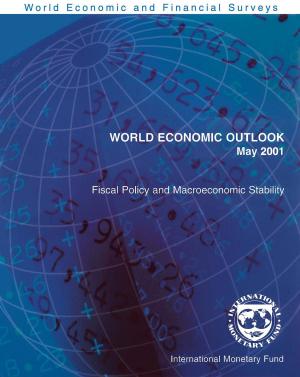Default in Today's Advanced Economies: Unnecessary, Undesirable, and Unlikely
Business & Finance, Economics, Money & Monetary Policy, Macroeconomics| Author: | Carlo Mr. Cottarelli, Paolo Mr. Mauro, Lorenzo Forni, Jan Gottschalk | ISBN: | 9781455270842 |
| Publisher: | INTERNATIONAL MONETARY FUND | Publication: | September 1, 2010 |
| Imprint: | INTERNATIONAL MONETARY FUND | Language: | English |
| Author: | Carlo Mr. Cottarelli, Paolo Mr. Mauro, Lorenzo Forni, Jan Gottschalk |
| ISBN: | 9781455270842 |
| Publisher: | INTERNATIONAL MONETARY FUND |
| Publication: | September 1, 2010 |
| Imprint: | INTERNATIONAL MONETARY FUND |
| Language: | English |
This note summarizes the main arguments put forward by some market commentators who argue that default is inevitable, and presents a rebuttal for each argument in turn. Their main arguments focus on the size of the adjustment and continued market concerns reflected in government bond spreads. The essence of our reasoning is that the challenge stems mainly from the advanced economies’ large primary deficits. Thus, by lowering the interest bill while triggering the need to move to primary balance or a small primary surplus, default would not significantly reduce the need for major fiscal adjustment. In contrast, the emerging economies that defaulted in recent decades did so primarily as a result of high debt servicing costs, often in the context of major external shocks. We conclude that default would be ineffective and undesirable in today’s advanced economies.
This note summarizes the main arguments put forward by some market commentators who argue that default is inevitable, and presents a rebuttal for each argument in turn. Their main arguments focus on the size of the adjustment and continued market concerns reflected in government bond spreads. The essence of our reasoning is that the challenge stems mainly from the advanced economies’ large primary deficits. Thus, by lowering the interest bill while triggering the need to move to primary balance or a small primary surplus, default would not significantly reduce the need for major fiscal adjustment. In contrast, the emerging economies that defaulted in recent decades did so primarily as a result of high debt servicing costs, often in the context of major external shocks. We conclude that default would be ineffective and undesirable in today’s advanced economies.















